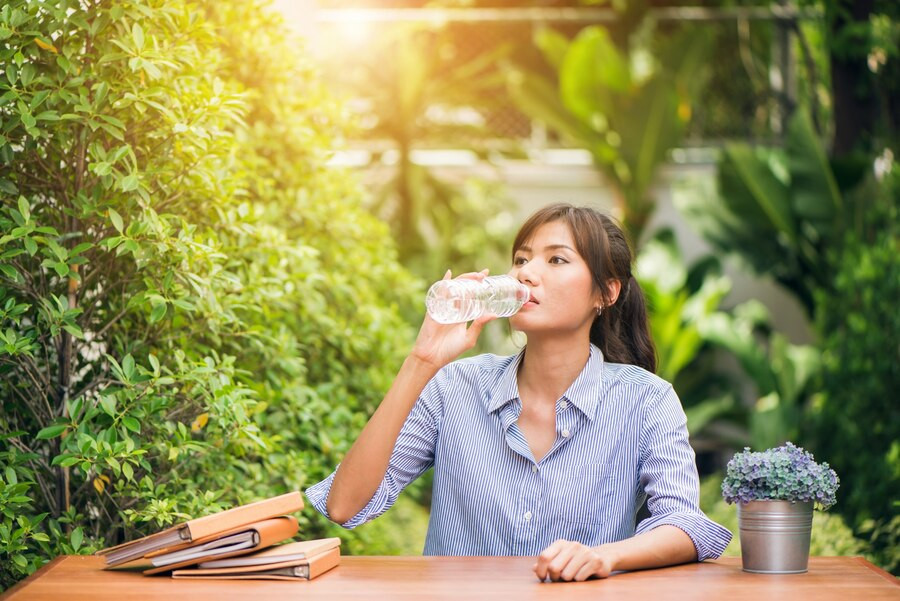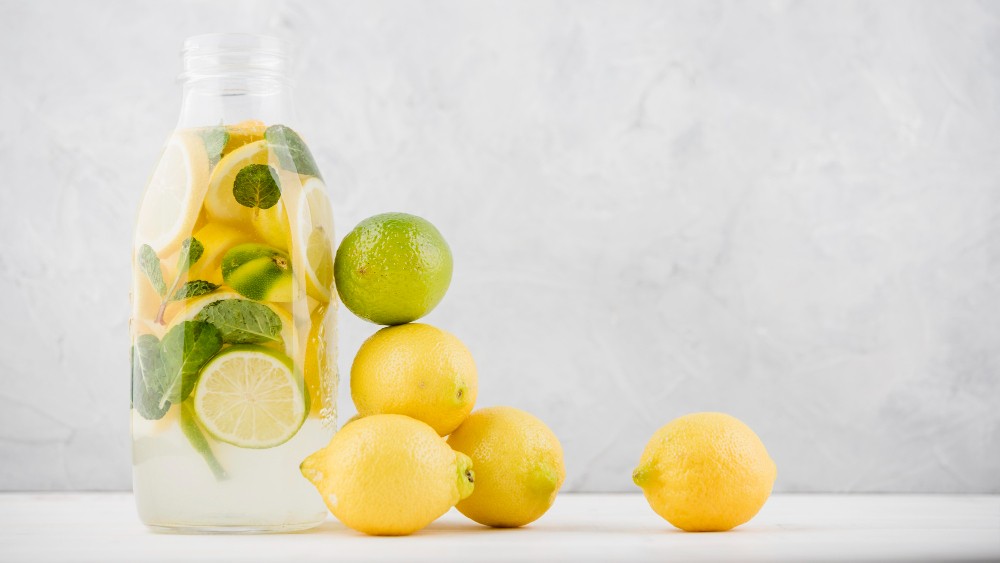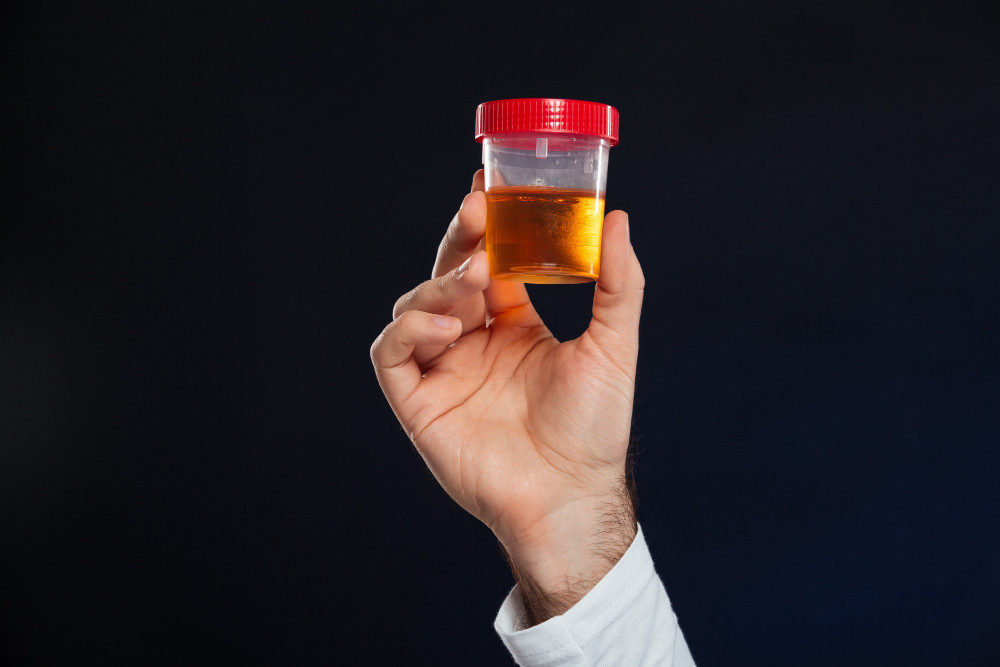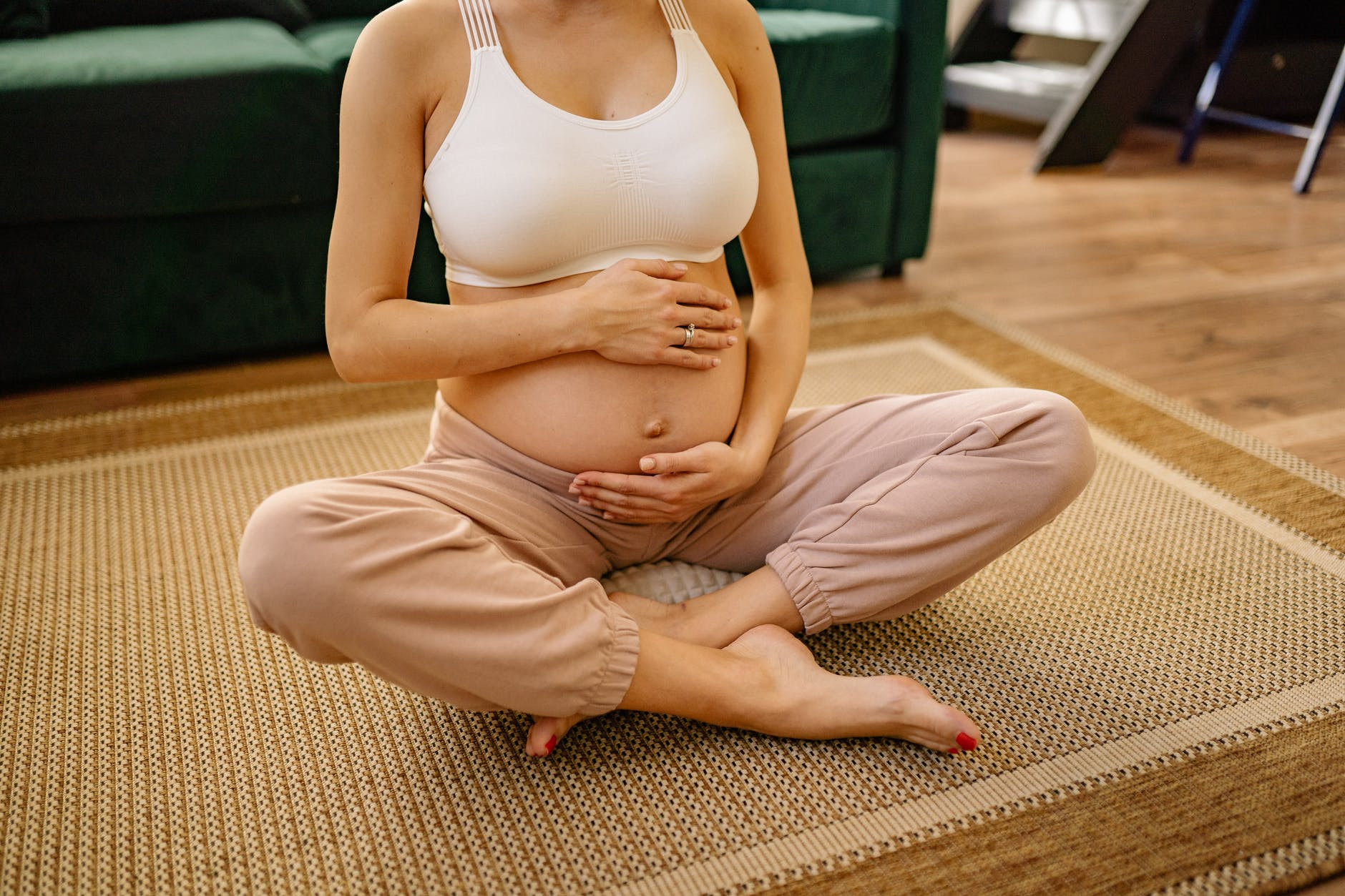Cuaca panas ekstrem dapat meningkatkan risiko dehidrasi dan gangguan kesehatan lainnya. Menjaga tubuh terhidrasi sangat penting untuk kesehatan Anda, terutama selama periode cuaca panas yang intens.
Namun, Anda juga tidak bisa minum terlalu banyak air. Ini dapat menyebabkan kondisi yang disebut hiponatremia, di mana kadar natrium dalam darah terlalu rendah. Jadi, sebaiknya bagaimana menjaga hidrasi tubuh selama cuaca panas ekstrem?
Tips Menjaga Hidrasi Tubuh Selama Cuaca Panas Ekstrem
Minum air secara teratur
Minum air secara teratur bahkan ketika tidak merasa haus membantu menjaga keseimbangan cairan tubuh dan mencegah risiko dehidrasi. Terkadang rasa haus adalah tanda bahwa tubuh sudah dalam keadaan dehidrasi, sehingga menunggu minum saat merasa haus bisa menjadi terlambat.
Gunakan botol air untuk membantu menjadwalkan waktu untuk minum air setiap jam. Ini juga membantu Anda untuk minum tidak berlebihan karena sudah terlebih dahulu mengukurnya.
Minum minuman elektrolit
Ketika Anda berkeringat, tidak hanya air yang hilang dari tubuh, namun juga elektrolit. Tidak ada salahnya untuk minum minuman elektrolit saat berada di tengah cuaca panas ekstrem. Anda bisa mendapatkan manfaatnya melalui minuman olahraga, air kelapa, dan oralit yang bisa didapatkan di apotik atau toko obat.
Baca Juga: Risiko Minum Alkohol di Tengah Cuaca Panas Ekstrem
Menghindari minuman berkafein dan beralkohol
Minuman seperti kopi, teh, minuman bersoda. dan alkohol sebaiknya dihindari selama cuaca panas ekstrem. Minuman-minuman tersebut memiliki efek diuretik yang dapat meningkatkan produksi urine dan menyebabkan tubuh kehilangan lebih banyak cairan.
Mengenakan pakaian yang nyaman dan ringan
Untuk menjaga tubuh tetap nyaman dan terhindar dari overheating selama cuaca panas ekstrem, sebaiknya gunakan pakaian yang ringan, longgar dan berbahan breathable seperti katun atau linen.
Memperhatikan asupan makanan
Tidak hanya air minum, mengonsumsi makanan yang tinggi kadar air seperti buah-buahan segar, sayuran dan makanan berkuah dapat membantu meningkatkan asupan cairan dan menjaga keseimbangan cairan tubuh selama cuaca panas.
Beberapa contoh makanan yang mengandung kadar air tinggi dan cocok untuk dikonsumsi selama cuaca panas ekstrem termasuk semangka, timun, stroberi, tomat, selada, jeruk, pepaya, dan apel. Selain itu, makanan seperti sup sayuran, salad, smoothie buah-buahan, atau jus sayuran juga dapat menjadi pilihan yang baik untuk meningkatkan hidrasi Anda.
Baca Juga: Cara Melindungi Kulit di Tengah Cuaca Panas
Menghindari aktivitas berlebihan
Mengurangi aktivitas fisik yang berlebihan selama cuaca panas membantu mencegah risiko overheating dan heatstroke. Aktivitas fisik yang berlebihan selama cuaca panas dapat menyebabkan tubuh Anda kelebihan panas. Ini meningkatkan risiko overheating dan terkena heatstroke.
Memperhatikan tanda-tanda dehidrasi
Mengenali tanda-tanda dehidrasi menjadi langkah penting dalam menjaga kesehatan dan mencegah komplikasi yang lebih serius. Beberapa tanda dehidrasi yang perlu diperhatikan seperti mulut kering, kulit kering, pusing, kelelahan, serta urine berwarna gelap.
Perlu diingat bahwa jumlah air minum yang dibutuhkan setiap orang bisa bervariasi, tergantung pada usia, berat badan, tingkat aktivitas, kondisi kesehatan dan cuaca. Untuk mendapatkan ketentuan jumlah air yang tepat, Anda perlu berkonsultasi dengan dokter atau ahli gizi. Anda bisa memanfaatkan layanan konsultasi kesehatan dengan mengunduh aplikasi Ai Care melalui App Store atau Play Store.
Mau tahu informasi seputar penyakit lainnya? Cek di sini, ya!
- dr. Monica Salim
Sandy Cohen (2022). How to stay hydrated in the summer heat. Available from: https://www.uclahealth.org/news/how-to-stay-hydrated-in-the-summer-heat
Claire Bugos (2022). You're Probably Better at Hydrating Than You Think. Available from: https://www.verywellhealth.com/heat-wave-hydration-tips-6361025
Mayo Clinic (2022). Hyponatremia. Available from: https://www.mayoclinic.org/diseases-conditions/hyponatremia/symptoms-causes/syc-20373711
American Heart Association (2024). Staying Hydrated, Staying Healthy. Available from: https://www.heart.org/en/healthy-living/fitness/fitness-basics/staying-hydrated-staying-healthy
Harvard Medical School (2023). How much water should you drink?. Available from: https://www.health.harvard.edu/staying-healthy/how-much-water-should-you-drink
Lauren Manaker, MS, RDN, LD (2023). What Is an Electrolyte Drink, Really?. Available from: https://www.health.com/electrolyte-drinks-7970203
Mayo Clinic (2023). Heatstroke. Available from: https://www.mayoclinic.org/diseases-conditions/heat-stroke/symptoms-causes/syc-20353581
NHS UK (2022). Dehydration. Available from: https://www.nhs.uk/conditions/dehydration/











